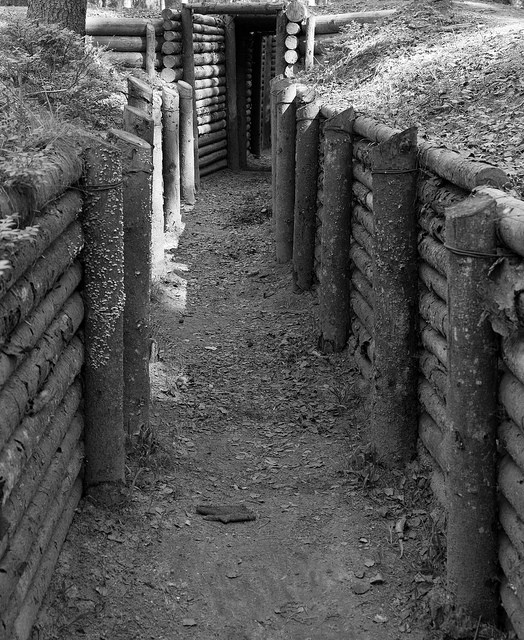
Of Gas and Guilt
By Alexander Schuhr
My grandfather farted a lot. Sometimes it took as little as rising from a chair or a slight adjustment of his position and he’d let one fly. In my preadolescent years, I used to burst into laughter. And why not? Among my classmates, a thunderous salute called for proper acknowledgement. Embarrassment was so completely absent that we would occasionally force one out, just to obtain the cheers of adoring fans. But this response to my grandfather’s flatulence was not appreciated. Hushing, hissing, and poisonous gazes would hit me and abruptly end my delight. My grandfather’s farts were no laughing matter.
Much later, after my grandfather had died, I learned that leg prostheses often produce flatulence sounds. Air is trapped between stumps and prosthetic liners, and its release may sound like a fart. My grandfather had lost a leg above the knee. And while I can certainly not exclude that some of the sounds he produced were the real thing, I was shamed by the insight that I had often ridiculed a humiliating side effect of his handicap.
But neither my grandfather nor any other adult ever bothered clarifying this simple misunderstanding. The reason, I believe, wasn’t the poor taste of my reaction. The whole subject of my grandfather’s lost leg was off limits. Only at his funeral did my grandmother, no longer in possession of her full mental faculties, reveal the details.
The end of the Second World War was approaching, and allied troops had landed on the beaches of Normandy.
My grandfather sought shelter in in a trench when he spotted a hostile soldier, a few hundred feet away. “I got him,” he announced, and crawled out of the trench to take aim. Then came the explosion and the shrapnel that hit him. “My leg is gone,” he screamed, as he was dragged back into the trench. “Calm down, it’s still there,” was the response. But my grandfather was right. The impact had severed the bone.
Veterans were wounded, lost limbs, and were mentally scarred by the things they’d seen. But many took comfort in the fact that they’d fought for a good cause: for freedom, for democracy, against tyranny.
There was no such consolation for my grandfather. He had fought for Hitler.
He was only twelve when Hitler came to power. When the Nazis ignited the war, he was old enough to be drafted. Half a century later, I would see his reaction to images on TV, images of the war, images of the genocide committed in the name of German superiority. “We didn’t know that,” he would mumble, and then change the channel or take another sip from the beer bottle.
It wasn’t in him, the extraordinary heroism of resistance that some displayed, often paying the ultimate price. Perhaps he wasn’t aware of the extent of the war crimes and atrocities. Maybe he didn’t fully understand the meaning of war, what it led to, and how it would eventually ravage his own life. He had been deceived, he would claim.
But there was no deception in the politics that made it all possible. There was no deception in the public display of resentment and chauvinism. The incitement of hatred, the scapegoating of the marginalized, the terrorizing of easy victims—they all had happened out in the open, for many years before the killing began. Many Germans of my grandfather’s generation embraced these developments, or, at least, accepted them. And therein lies their guilt.
It was this guilt my grandfather tried to bury, although the guilt stayed, stalking him to his deathbed. It was this guilt that prevented him from mourning, from healing, from finding any meaning in his personal suffering.
Today resentful politics is on the rise again, and many give in to its cathartic temptations. But the price may be awful, and nothing may ever be innocent again. Not even the silly giggling of an immature boy at the supposed passing of gas.
Alexander Schuhr is an author, essayist, and scholar. He was born and raised in Munich (Germany). Before coming to the United States, he lived in various countries in Europe and Sub-Saharan Africa. He holds an M.A. in political science and a Ph.D. in economics. He writes fiction and creative nonfiction. He has a wife and a three-year-old daughter.
Photo credit: Ninara via a Creative Commons license.
